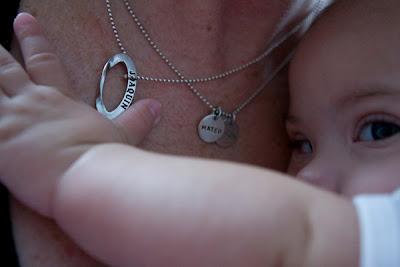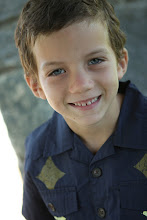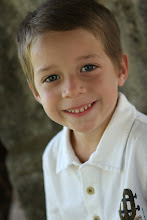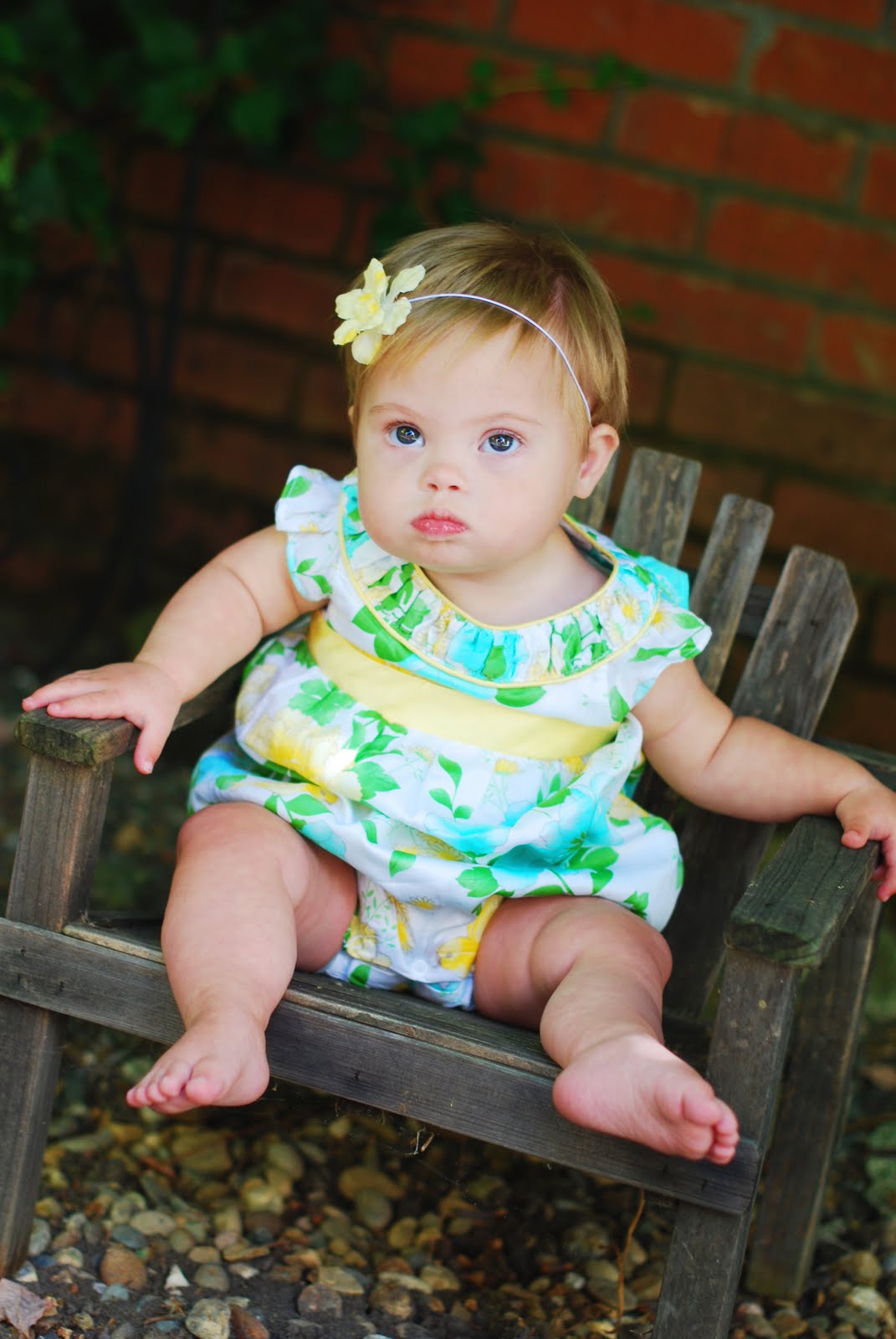This story was written by Erma Bombeck on May 11, 1980 and Glenn Doman recited it for us at the last hour of the last day of lectures in Philadelphia. It was very touching and of course I was crying by the end of it, as was every other mother in the room with me, all of us feeling a sense of camaraderie.
THE SPECIAL MOTHER
by Erma Bombeck
Most women become mothers by accident, some by choice, a few by social pressures, and a couple by habit.
This year, nearly 100,000 women will become mothers of handicapped children. Did you ever wonder how mothers of handicapped children are chosen?
Somehow, I visualize God hovering over Earth selecting His instruments for propagation with great care and deliberation. As He observes, he instructs His angels to make notes in a giant ledger.
"Armstrong, Beth: son. Patron saint, Matthew. Forest, Marjorie: daughter; patron saint Cecilia.
"Rutledge, Carrie: twins. Patron saint....give her Gerard. He's used to profanity."
Finally, He passes a name to an angel and smiles. "Give her a handicapped child."
The angel is curious. "Why this one, God? She's so happy."
"Exactly," says God. "Could I give a child with a handicap to a mother who does not know laughter? That would be cruel."
"But does she have patience?" asks the angel.
"I don't want her to have too much patience, or she will drown in a sea of self-pity and despair. Once the shock and resentment wear off, she'll handle it."
"But Lord, I don't think she even believes in you."
God smiles. "No matter, I can fix that. This one is perfect. She has just enough selfishness."
The angel gasps. "Selfishness? Is that a virtue?"
God nods. "If she can't separate herself from the child occasionally, she'll never survive. Yes, here is a woman whom I will bless with a child less than perfect. She doesn't realize it yet, but she is to be envied.
"She will never take for granted a spoken word. She will never consider a step ordinary. When her child says 'Momma' for the first time, she will be witness to a miracle and know it! When she describes a tree or a sunset to her blind child, she will see it as few people ever see my creations.
"I will permit her to see clearly the things I see- ignorance, cruelty, prejudice- and allow her to rise above them. She will never be alone. I will be at her side every minute of every day of her life because she is doing my work as surely as she is here by my side."
"And what about her patron saint?" asks the angel, his pen poised in mid-air.
God smiles. "A mirror will suffice."
 I've been meaning to write about a very special gift I got from Hector awhile back, shortly after receiving Joaquin's diagnosis. I wear it around my neck and I love it. It's my "Halo with a Twist" and it has Joaquin's name and birthdate engraved on it. I love it and I get compliments on it all the time. It's a pretty sterling silver oval "Halo" that is twisted on one side. It symbolizes the beauty and uniqueness of imperfection. It has become the first international symbol for Down syndrome. The founder of the website Band of Angels, Cynthia Kidder, describes it best. "It’s shimmering and reflective of light; a little different, sturdy yet beautiful. The light is reflected and radiated from it. The twist is the reminder of imperfections in each of us."
I've been meaning to write about a very special gift I got from Hector awhile back, shortly after receiving Joaquin's diagnosis. I wear it around my neck and I love it. It's my "Halo with a Twist" and it has Joaquin's name and birthdate engraved on it. I love it and I get compliments on it all the time. It's a pretty sterling silver oval "Halo" that is twisted on one side. It symbolizes the beauty and uniqueness of imperfection. It has become the first international symbol for Down syndrome. The founder of the website Band of Angels, Cynthia Kidder, describes it best. "It’s shimmering and reflective of light; a little different, sturdy yet beautiful. The light is reflected and radiated from it. The twist is the reminder of imperfections in each of us."

 It's still difficult to see adults with Down syndrome. Lately, I've run into some groups of disabled adults at the park and at the mall and there is always at least one or two adults with DS. It's very surreal for me as I look at them and then look at my baby. I don't think I've noticed as many Down syndrome adults in the past five years as much as I do now. Lately the groups of people I have seen are severely impaired and have the very typical behaviors that are often associated with severe disabilities. Their group leaders escort the adults through the mall, holding their hands or escort them to the park picnic tables where they all sit quietly with little or no interaction. This is so terribly difficult to see. I can't help but wonder.... what kind of childhood did they have? Are these the babies that were sent away to an institution? Are these the babies that were more severe and the parents weren't able to take care of them? Where do they live now? Are their families at all involved? Did they have services early on to help them achieve their potential or were they just left alone to fend for themselves? I have so many unanswered questions.
It's still difficult to see adults with Down syndrome. Lately, I've run into some groups of disabled adults at the park and at the mall and there is always at least one or two adults with DS. It's very surreal for me as I look at them and then look at my baby. I don't think I've noticed as many Down syndrome adults in the past five years as much as I do now. Lately the groups of people I have seen are severely impaired and have the very typical behaviors that are often associated with severe disabilities. Their group leaders escort the adults through the mall, holding their hands or escort them to the park picnic tables where they all sit quietly with little or no interaction. This is so terribly difficult to see. I can't help but wonder.... what kind of childhood did they have? Are these the babies that were sent away to an institution? Are these the babies that were more severe and the parents weren't able to take care of them? Where do they live now? Are their families at all involved? Did they have services early on to help them achieve their potential or were they just left alone to fend for themselves? I have so many unanswered questions.


 Some of the lectures we heard at the Institutes were given by the staff, but mostly by Janet Doman, the Director of the Institutes and Douglas Doman, the Vice Director. But some of them are still given by Glenn Doman, the founder. He sits in a chair at the front of the auditorium and uses cue cards that he reads. Every day, we were asked to arrive at least 15 minutes early in the morning so we could find our assigned seats because they shuffle everyone around. The last day Jen and I were lucky to be seated in the front row a few feet from where Glenn Doman was sitting.
Some of the lectures we heard at the Institutes were given by the staff, but mostly by Janet Doman, the Director of the Institutes and Douglas Doman, the Vice Director. But some of them are still given by Glenn Doman, the founder. He sits in a chair at the front of the auditorium and uses cue cards that he reads. Every day, we were asked to arrive at least 15 minutes early in the morning so we could find our assigned seats because they shuffle everyone around. The last day Jen and I were lucky to be seated in the front row a few feet from where Glenn Doman was sitting.
 So we completed the course "What To Do About Your Brain Injured Child" the first week at the Institutes. The Institutes for the Achievement of Human Potential is located in Chestnut Hill which is a suburb of Philadelphia. It is a gorgeous little town with cobblestone streets and lots of charm. The Institutes is located on a very large piece of property (something like 6 acres) and it is beautiful and green and lush. It was about a mile away from our rented apartment so Hector and I had a lovely walk everyday to and from the course.
So we completed the course "What To Do About Your Brain Injured Child" the first week at the Institutes. The Institutes for the Achievement of Human Potential is located in Chestnut Hill which is a suburb of Philadelphia. It is a gorgeous little town with cobblestone streets and lots of charm. The Institutes is located on a very large piece of property (something like 6 acres) and it is beautiful and green and lush. It was about a mile away from our rented apartment so Hector and I had a lovely walk everyday to and from the course.






